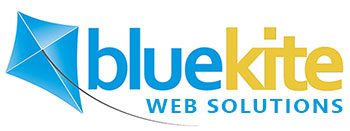#1 Way to Delay a Web Project
 In 15 years of working with businesses on their websites I’ve seen this scenario over and over again:
In 15 years of working with businesses on their websites I’ve seen this scenario over and over again:
A business owner in the midst of a web design or redesign project will spend a lot of time thinking about what the new website should look like.
Quite a bit of time is also spent thinking about search engine visibility.
But when it comes to the words that need to be written to make up the pages of the website — the website content — well, not so much.
The most common answers we hear when we ask about a business owner about website content are…
- “I’ll do it myself.”
- “It won’t take long.”
- “I’ll get someone on staff to do it.”
- “Here’s our brochure.”
- “We didn’t budget for it.”
The result is that the content is usually hastily cobbled together at the last minute. Or the website is launched with incomplete content. Or the website launch is delayed, sometimes for a long time.
Don’t make this mistake. Site design and search engine optimization are important — but mainly as tools whose purpose is to bring people to and showcase the all-important site content.
The site content is what will convince people to buy your product or service and call or email you.
You might not realize this, but your site content is also a critical part of your site optimization. Your content is a lot more important to Google than metatags or other SEO techniques. Your content is what really determines your ranking on Google.
Here’s our advice for addressing your web content:
- Planning, organizing, and writing your content takes time. More time than you think it will take. It always takes at least double or triple (and typically more) the amount of time clients estimate.
- Make it a priority. As soon as you decide you want a website, or you want to redesign your website, start thinking about what this website will say and which pages will be needed to say it clearly and well.
- Don’t just take text from existing brochures and other printed material and copy and paste it into your website. Writing for the web has key differences from writing for print. On the web it is important to get to the point quickly and keep your message short and sweet. Use brief paragraphs, bulleted and numbered lists, headings and enough white space.
- A useful technique for writing web copy is to come up with a description of your typical customer, then write as if you’re talking directly to them. Focus on their concerns. Think about what they want to know, and provide that information. Remember that people are skeptical of content published online because there is so much garbage and so many hoaxes. They are outright allergic to sales pitches! So write using unbiased language and build your credibility through case studies and/or testimonials.
- Think about hiring a professional if you’re struggling too much, you don’t like the way the words are turning out, or if the process is holding up the launch of your website. A good web copywriter will make it easy for you by interviewing you about your business and then creating web-friendly copy.
Budget either time or money for your content and you’ll take an enormous step toward a stress-free website project that launches on time and within budget.
